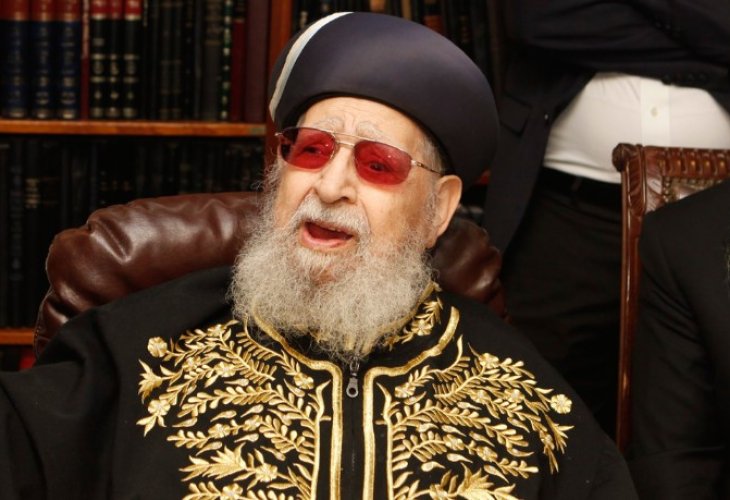Jewish Law
The Sanctity of Life in Judaism: Why Taking One’s Own Life Is Never Justified
Explore the Torah’s timeless perspective on the value of life, the prohibition of suicide and euthanasia, and the power of faith through suffering

Sadly, in recent times, certain ideas have crept into public thought that stand in stark contrast to the spirit of our holy Torah. Some claim that if a person suffers greatly — whether from financial hardship, severe illness, or deep emotional pain, and decides to end his life, his actions can somehow be justified, or that he should not be judged harshly because of his suffering.
This attitude is completely opposed to Torah values. According to Jewish law, a person’s soul belongs to God alone. Human life is sacred and its end is determined only by the Creator. No one — not even the person himself, has the authority to decide the moment of death.
The Gravity of Suicide in Jewish Law
The Sages taught that “one who takes his own life has no share in the World to Come.”
Although in Heaven each soul is judged mercifully and every person’s pain is taken into account, the act itself remains forbidden. The Talmudic and halachic authorities rule that one who dies by suicide is not mourned with the usual customs of shiva or tearing of garments, because he violated the divine gift of life.
Rabbi Ovadia Yosef (in Yabia Omer, vol. 2 and 6) ruled that every case must be examined individually, since sometimes mitigating circumstances may allow mourning practices. Still, the principle stands that taking one’s own life is one of the gravest transgressions in the eyes of Torah.
Euthanasia and Hastening Death
Similarly, anyone who grants permission for doctors to hasten the death of a suffering patient falls under the same prohibition. Even when a person is enduring terrible pain, it is absolutely forbidden to take a life, for every moment of life — even in suffering, has immeasurable spiritual value.
Our sages teach that each hour of life can atone for sins and elevate the soul. The lifespan and pain of every person are divinely measured and serve a higher purpose — to purify and prepare the soul for eternal peace.
Therefore, physicians or family members who “mercy-kill” someone, believing they are helping, are tragically mistaken. The Talmud says, “The best of doctors is destined for Gehenna” — referring to those who interfere with the divine gift of life.
When it comes to withdrawing medical treatment from terminal patients, such decisions must be made only with the guidance of a great Torah scholar who is expert in these matters.
A Tragic Incident at Porat Yosef Yeshiva
When Rabbi Ovadia Yosef was about seventeen and studying at Porat Yosef Yeshiva, one of the students there lived in terrible misery. He was orphaned from his father, mistreated by his mother, and lived in deep poverty. Overwhelmed by pain and despair, he decided to end his life.
One day, after a painful argument with his mother, he drank poison in the study hall. The boys, including the young Rabbi Ovadia, were horrified. They called for help, and Rabbi Yosef Sharabani and other rabbis rushed to his aid, carrying him to the hospital ,where his life was miraculously saved.
Rabbi Ovadia would later recall, “To this day, whenever I remember that scene, I tremble.”
The yeshiva was in deep sorrow. Rabbi Eliyahu Lopes, one of the great teachers, gathered the students and delivered a fiery talk about the terrible sin of suicide, reminding them that many were suffering but that despair could never justify such an act.
He read aloud a chilling story from Minchat Eliyahu, written by Rabbi Eliyahu HaCohen of Izmir (author of Shevet Musar), about a spirit that revealed the fate of one who took his own life.
The Story of the Spirit That Spoke
A woman in Rabbi Eliyahu HaCohen’s city suffered from a strange illness: she would suddenly collapse as if dead, deaf and blind, then awaken later. Doctors could find no cure. Her family begged the rabbi to visit.
When he entered her home, she collapsed again, and a male voice spoke from her throat, greeting the rabbi.
The spirit revealed that it was once a student of Rabbi Eliyahu’s. In life, he had repented fully and become meticulous in Torah observance. But before his wedding, he suffered severe financial ruin and was unable to fulfill his engagement promises. Overwhelmed with shame, he gave away his last money to charity and took his own life.
He was buried apart from the rest of the community, as Jewish law requires for suicides. His soul, now tormented, confessed that despite his repentance and righteous deeds, nothing could erase the spiritual damage of having destroyed his own life.
Rabbi Eliyahu performed spiritual interventions to ease the man’s suffering, but the lesson was clear: even a pious and penitent soul cannot justify such an act.
Faith Amid Suffering: The Jewish Response
Unlike that tormented soul, the Jewish path is to endure, to trust, and to wait for God’s mercy. The righteous understand that this world is only a passageway to the next, and that accepting divine judgment with love leads to eternal reward.
Every breath, every heartbeat, even through tears and pain, carries infinite worth in Heaven.
Judaism teaches that life is sacred and belongs only to God. Suffering, while excruciating, is never meaningless — it refines the soul and brings ultimate peace. To preserve life, even for a moment, is to honor the Creator.

